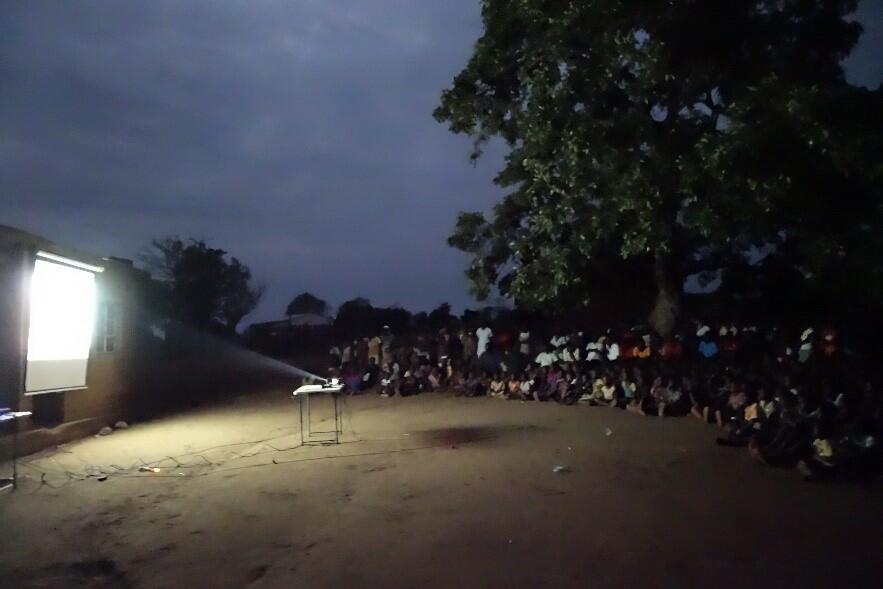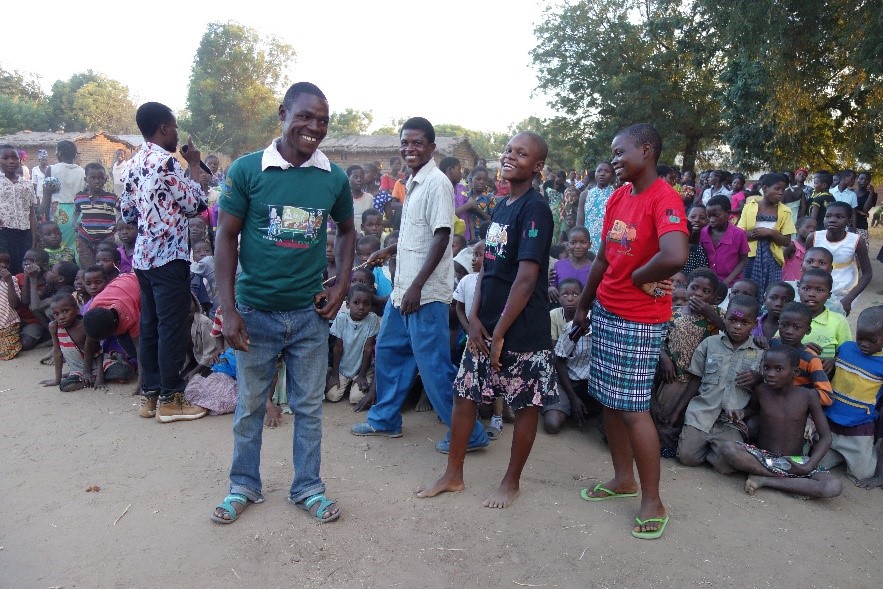
A film called ‘Dirty Air and Pneumonia’ which is being used to disseminate the results of long term household air pollution studies has been enthusiastically received in participant villages in Malawi.
The Cooking and Pneumonia Study (CAPS) was led by LSTM’s Dr Kevin Mortimer and carried out between 2013 and 2016. It was a cluster randomised trial of an advanced cookstove intervention in two rural low-resource settings in Malawi, Chilumba in the north and Chikhwawa in the south. In these communities over 95% of inhabitants cook using biomass on open fires or inefficient cookstoves and this toxic air pollution has been linked with adverse health impacts such as lung cancer, chronic obstructive lung disease and pneumonia. It is estimated that half a million children in sub-Saharan Africa die each year due to pneumonia and this disease is the leading cause of death in Malawian children under the age of five.
LSTM’s Jane Ardrey, Programme Manager and PhD candidate, said: “Throughout the CAPS trial, film was used to communicate widely about the health impacts of air pollution and, trial aims and progress, so it is only fitting that the results are communicated in the same way. This was the largest trial of a health related cookstove intervention completed so far and while the study found that there was no effect on the incidence of pneumonia in the intervention group, film is an innovative way to communicate the potential reasons for those findings.”

A short film was produced in 2014 and the BBC also came to Malawi in December that year look at the issue of the health risks associated with open-fire cooking. From the outset of the study, film footage was also collected that would allow the whole story of CAPS, including the result, to be communicated to the trial participants. The resulting film Dirty Air and Pneumonia was completed by Handstand Productions in April 2018 and a 2-week programme began on the 21st of May with the aim of sharing the film with as many CAPS participants at the Chikhwawa site, as possible.
The Malawi-Liverpool-Wellcome Trust Science Communication Team are managing this process and have developed an interactive programme including Q&A sessions and t-shirt prizes. In the first week, five events were held reaching 14 villages and over 3000 people. “A monitoring and evaluation process has been designed to assess the efficacy of using film to disseminate the CAPS results,” continued Jane Ardrey, “and there is clearly great interest in the film and initial indication is that there is an increased understanding of the results. The communities have been integral to the study process, and it is fantastic to share results in such an interactive fashion.”
You can read the full results of the CAPS study as published in the Lancet here.